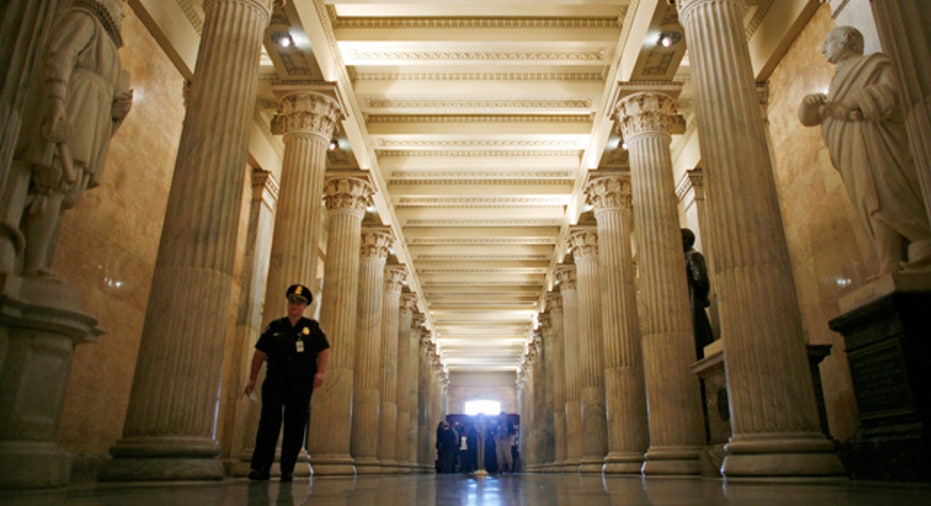Tax Deal Edges Forward Despite Doubts

A plan by President Barack Obama to broadly extend tax cuts edged forward on Wednesday despite opposition from his own Democrats and fear in bond markets of long-term damage to the economy.
Senate Democratic Leader Harry Reid said the proposal to extend all Bush-era income tax cuts could move quickly in the Senate, in a sign Democrats may be conceding on the deal.
"It's further along than most people think," Reid said. "I don't think there is a great more to be done on that."
The remarks were in contrast to earlier comments from Reid that the tax proposal, hammered out between Obama and Republicans, was "only a framework".
The president was forced to compromise partly because of the growing clout of Republicans, who won control of the House of Representatives and gained seats in the Senate in last month's congressional elections.
Treasury prices fell on Wednesday, with benchmark yields hovering at their highest in six months, as debt markets worry the tax plan will stoke inflation and deepen the budget deficit.
"This tax agreement is a disaster for the U.S. fiscal situation," said Howard Simons, strategist at Bianco Research in Chicago.
The dollar, however, advanced on perceptions the tax cuts could increase U.S. economic growth.
The plan would extend all individual tax cuts expiring at year end, in addition to renewing jobless benefits, a payroll tax credit and among other measures.
Several economists said the plan could boost growth from a half to a whole percentage point next year, cut unemployment and lessen demand for the Federal Reserve to boost its bond-purchasing stimulus program.
Obama on Wednesday touted economists' raised forecasts because of the deal, and said Democrats had not been "betrayed" because he was acting to spur the economy.
"I expect everybody to examine it carefully," Obama said. "When they do I think they're going to feel confident that this is the right course."
He also said that after two years when the economy recovers, the country can overhaul the tax code and the budget deficit.
"Republicans are going to have to explain to the American people over the next two years how making those tax cuts for the high-end permanent squares with their stated desire to start reducing deficits and debt," he said.
While drawing mostly praise from Republicans, the mammoth proposal has angered many of Obama's fellow Democrats who complain that the president dropped his opposition to tax hikes for the wealthy and got too little in return.
BIPARTISAN COALITION?
No date for a vote has been set. Although not a sure thing, many analysts believe the bill, which is likely being drafted by a Senate committee, will pass with a coalition of Republicans and more conservative Democrats.
"I imagine they are now working on this," said Marc Gerson, a lawyer who worked on the tax-writing committee in the House. "A lot of it has already been drafted, so a lot will be cut and paste."
Vice President Joseph Biden pitched the deal to Democratic senators on Tuesday and will press the same argument to House Democrats on Wednesday afternoon.
In addition to tax cuts, the deal calls for a 13-month extension of unemployment benefits, which could appease Democrats. But Obama also conceded to Republican demands on the estate tax by proposing a 35 percent tax with a $5 million individual exemption level.
"There are a lot of Democrats unhappy with the tax deal. Biden will have a lot of explaining to do," a senior House Democratic aide said.
House Speaker Nancy Pelosi has voiced her concerns, particularly extending tax cuts for the wealthiest and weakening the estate tax.
Moody's Investors Service said U.S. finances could suffer in the long run, though it did not foresee a change to the country's AAA credit rating in the next 18 months to two years -- an assessment shared by other analysts.



















